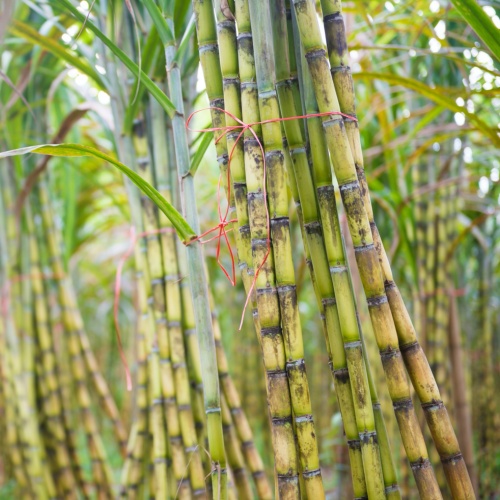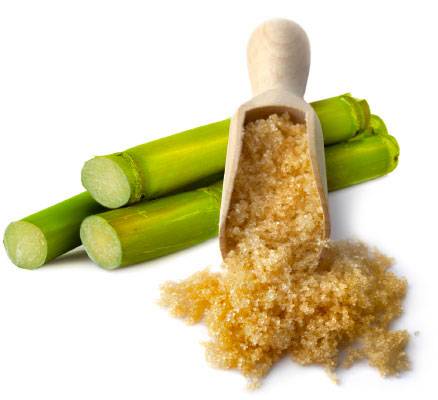Cane Sugar Processing: Key Technologies for Superior Sugar Manufacturing
Cane Sugar Processing: Key Technologies for Superior Sugar Manufacturing
Blog Article
A Thorough Overview of the Health and Economic Implications of Walking Stick Sugar Processing on Neighborhood Communities
Walking stick sugar handling plays an essential duty in shaping the financial landscape of neighborhood areas, offering employment possibility and stimulating secondary markets. Nonetheless, the wellness implications connected with high sugar intake can not be overlooked, as they contribute to climbing rates of weight problems and diabetes mellitus. This nuanced dynamic invites an essential examination of exactly how neighborhoods can enhance economic gains while attending to the pressing health and wellness challenges they encounter. The exploration of educational initiatives and sustainable practices may just hold the secret to reconciling these conflicting rate of interests. What techniques might neighborhoods execute to achieve this balance?
Economic Benefits of Walking Cane Sugar Handling
Walking stick sugar handling provides significant economic advantages that prolong past the immediate agricultural sector. The cultivation and processing of sugarcane produce numerous task possibilities, from farming to manufacturing and distribution. This employment generation not just supports neighborhood economic situations but additionally fosters community advancement by providing stable earnings resources for households.
Additionally, the sugar industry promotes supplementary services, consisting of transport, devices supply, and packaging solutions (Cane Sugar Processing). As these fields grow, they contribute to an extra robust financial framework, improving total community durability. The export capacity of processed walking stick sugar even more amplifies financial advantages, positioning areas as competitive gamers in global markets
Investment in modern handling centers can bring about boosted efficiency and performance, thus reducing waste and optimizing resource usage. This shift not just profits the neighborhood economic climate however additionally sustains sustainability initiatives by minimizing environmental impacts.
Moreover, the earnings created from cane sugar processing can be reinvested in regional facilities, education and learning, and health care, advertising holistic neighborhood growth. On the whole, the economic advantages of cane sugar handling are complex, offering a foundation for sustaining prosperity in agricultural regions.
Health And Wellness Threats Connected With Sugar Usage
Too much sugar intake positions substantial health threats that call for major focus. High consumption of sugarcoated, specifically from refined drinks and foods, has actually been connected to countless wellness difficulties. One of one of the most important problems is weight problems, as sugary diets add to a boosted calorie consumption without providing essential nutrients. This unwanted can cause metabolic conditions, including kind 2 diabetic issues, which has become progressively prevalent in both children and grownups - Cane Sugar Processing.
Moreover, high sugar usage is connected with heart disease. Elevated blood sugar level levels can bring about insulin resistance, a forerunner to numerous heart-related problems. In addition, sugar can have harmful effects on dental health, leading to dental caries and gum disease, as microorganisms in the mouth thrive on sugar, generating acids that erode tooth enamel.
Furthermore, arising research study suggests a possible web link between high sugar usage and mental wellness problems, such as depression and stress and anxiety. As areas grapple with these health and wellness dangers, it becomes important to promote awareness and motivate much healthier nutritional choices. Attending to sugar intake is essential not only for private wellness but likewise for the overall wellness of regional communities, emphasizing the demand for comprehensive public wellness techniques.
Ecological Influences of Sugar Production
Regularly forgotten in conversations regarding sugar's effects is the substantial ecological influence of sugar manufacturing. The farming of sugarcane frequently necessitates comprehensive land usage, resulting in logging, loss of biodiversity, and disturbance of neighborhood communities. The conversion of forests and marshes right into sugar vineyards can cause environment damage, threatening various species and altering eco-friendly equilibrium.
Additionally, sugar production is resource-intensive, consuming substantial amounts of water for watering. This can cause exhaustion of regional water sources, adversely affecting both agricultural techniques and neighborhood access to tidy water. In addition, making use of chemical fertilizers and chemicals in sugarcane farming can add to soil degradation and water air pollution, as overflow from these chemicals goes into nearby rivers and lakes, impacting aquatic life and human wellness.
The environmental footprint includes the processing phase, where power usage and waste generation further worsen environmental worries. Air contamination from shedding sugarcane fields, along with greenhouse gas exhausts, add to environment modification. Therefore, the ecological implications of sugar manufacturing warrant major consideration, advising stakeholders to take on more lasting practices to alleviate these adverse impacts on neighborhood ecological communities and neighborhoods.
Work Creation and Neighborhood Development
The ecological difficulties posed by sugar manufacturing are usually reversed by its potential for financial advantages, especially in work development and community growth. The walking stick sugar sector works as a significant resource of work in lots of country locations, offering tasks throughout numerous ability degrees, from farming labor to processing and distribution functions. This employment not just sustains specific families but additionally adds to the overall economic vitality of informative post regional neighborhoods.
Additionally, the facility of sugar processing facilities promotes secondary companies, such as transportation solutions, equipment supply, and upkeep carriers. As these companies grow, they develop added tasks and strengthen regional economic situations. The profits produced from the sugar industry also brings about boosted tax incomes, which can be reinvested right into social work such as framework, healthcare, and education and learning development.
In addition, the sugar sector usually takes part in area development initiatives, such as sustaining local colleges and health programs, thereby enhancing the quality of life for homeowners. By fostering solid neighborhood connections and promoting economic growth, the walking cane sugar processing field plays an essential role in uplifting neighborhood populations, making it a necessary component of sustainable growth techniques in sugar-producing areas.
Balancing Health And Wellness and Economic Growth
In navigating the intricacies of walking cane sugar processing, an essential challenge hinges on stabilizing health factors to consider with financial growth. The sugar sector considerably adds to local economic situations by producing jobs, boosting associated industries, and boosting tax incomes. However, the wellness effects connected with too much sugar intake can cause persistent illness such as excessive weight, diabetes mellitus, and cardiovascular issues, which can worry public health and wellness systems and reduce workforce efficiency.

Additionally, regulatory structures can play a crucial function in guiding sector techniques in the direction of more lasting and health-conscious methods. By cultivating collaboration between government bodies, wellness companies, and the sugar industry, areas can navigate the duality of health and financial growth, making sure that the advantages of walking stick sugar processing are equitably shared while focusing on public wellness.
Final Thought
Finally, the handling of walking stick sugar offers both significant economic advantages and notable health dangers for neighborhood neighborhoods. While it promotes task development and boosts local development, the affiliated health and wellness concerns, specifically concerning excessive weight and special info diabetic issues, necessitate a careful balancing act. By advertising liable usage and investing in community education and learning and lasting methods, it is feasible to optimize financial benefits while minimizing unfavorable health effects, thus guaranteeing a healthier future for neighborhood populations.
In addition, sugar can have harmful effects on dental health, resulting in cavities and gum tissue condition, as germs in the mouth flourish on sugar, creating acids that wear down tooth enamel.
Attending to sugar usage is critical not just for individual health however likewise for the general wellness of local communities, highlighting the demand for detailed public health methods.
Regularly overlooked in conversations concerning sugar's effects is the substantial environmental influence of sugar manufacturing. The see this here wellness effects associated with excessive sugar consumption can lead to persistent diseases such as excessive weight, diabetes, and cardiovascular issues, which can problem public health and wellness systems and lessen workforce performance.

Report this page